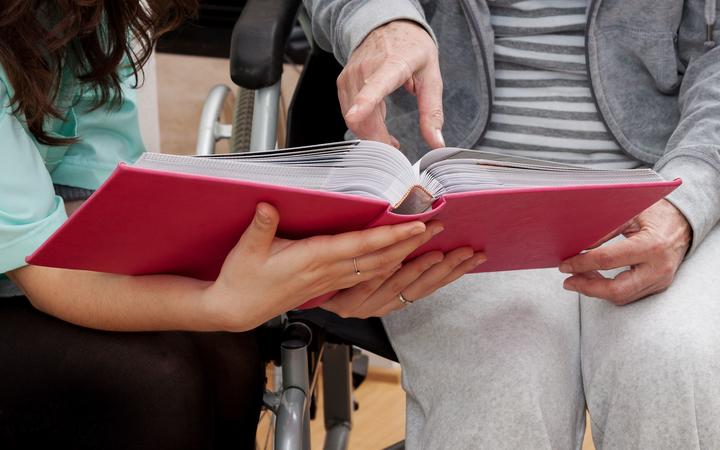5-6 minutes
Work has disappeared and
their savings are dwindling, but casual health workers hope they can help again.
 A healthcare worker whose job has disappeared says she misses hearing the stories of her older patients.
Photo: 123RF
A healthcare worker whose job has disappeared says she misses hearing the stories of her older patients.
Photo: 123RF
If Andrea* could have an Easter wish it would be simple: "I want this lockdown to finish so we can go back to our normal life."
Instead, she's desperately trying to find another job after her hours
as a hospital healthcare assistant were cut from nearly a full working
week to nothing since the lockdown.
Andrea misses the older patients because they loved to talk and share stories.
Now she's anxiously eyeing her dwindling savings, which are being
spent on the rent. There's definitely no money to spare to help support
her parents and brother.
At her hospital she says nearly 100 staff, who were working regular hours before, have been affected.
They're not able to get the wage subsidy because they are considered government workers.
"I just want some assistance. I know our agreements are 'casual' but we were utilised like permanent staff."
Kim
had been working as a nurse at the same hospital three days a week for
more than 10 years, as a casual employee. It's now one day a week if
she's lucky.
Kim says people become nurses because they genuinely want to help
others. Even though her own situation is worrying, she's more concerned
about other people and the future.
"I know a lady who is single and in her 60s. She has a mortgage and now her income has disappeared.
"If the government and DHBs [district health boards] don't care for
casual staff, when they do start doing elective surgery and clinics
again they won't have the people available because they will have had to
find other jobs.
"It also means their fulltime staff won't be able to get a break."
Her Easter wish was simple: "I want to get back to three days a week or some form of wage subsidy to help cover it."
-
If you have symptoms
of the coronavirus, call the NZ Covid-19 Healthline on 0800 358 5453
(+64 9 358 5453 for international SIMs) or call your GP - don't show up
at a medical centre
A fact sheet prepared for staff by health officials says the DHBs and
Ministry of Health are "very aware of the difficult and uncertain
position our casual workforce is facing at this challenging time".
It advises them to ask about other employment opportunities in the
system. Staff in need of financial assistance should contact Work and
Income, the advice says.
Rights of 'casual' employees misunderstood
Employment lawyer Ashleigh Fechney said a lot of companies, including
government departments, had made mistakes in how they managed their
'casual' employees.
Fechney said generally if people were working almost full-time and
expected at work then the arrangement was not truly casual. Other
factors included being on a roster and having to request absences rather
than just turning down work.
[https://www.rnz.co.nz/news/covid-19 See all RNZ coverage of Covid-19
A true casual was there to cover shifts people pulled out of or increases in demand.
"If you're working one day a week and that's every Friday then that is not a casual arrangement."
Fechney believed there was risk to employers if people could prove they were being used more like a permanent employee.
For example, casual payments included 8 per cent in lieu of annual
leave. But if an employee was found to have been working like a
permanent staff member then they were able to get another 8 percent.
RNZ has asked the government and Ministry of Health for a response.
*Workers' names have been changed.
Join Geezgo for free. Use Geezgo's end-to-end encrypted Chat with your Closenets (friends, relatives, colleague etc) in personalized ways.>>

Comments
Post a Comment